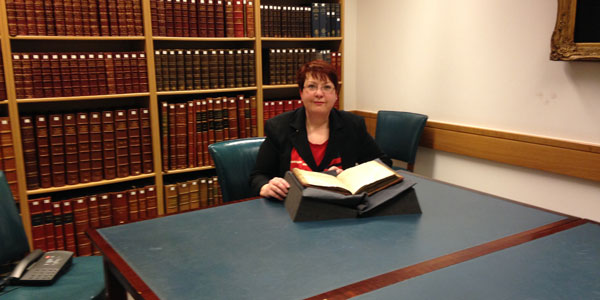
August 13, 2015, by Emma Rayner
#MeantToBe – advice from our AncientBiotics academic on A level results day
With her AncientBiotics team’s remarkable research paper ‘A 1,000-Year-Old Antimicrobial Remedy with Antistaphylococcal Activity’ just published, Dr Christina Lee from our School of English has some advice for prospective students on A level day…
“Today is the day that can mean big choices for those receiving their exam results – a fork in the road or even a spaghetti junction of decisions to be made! But did you realise that if you gain a place at The University of Nottingham, it could take you to places that you have never envisaged and may give you opportunities that you have never dreamed of? This was the case with me.
I am an Associate Professor in Viking Studies in the School of English. For a long time I have been thinking about the ways in which diseases and impairments have shaped past societies – how did they live with the impact of large pandemics? My main area of studies were texts and medieval languages – but these were most likely not written by doctors, but people who were making a point or who had some hear-say knowledge. So to pursue this research I needed to collaborate with people who understand how diseases work.
One of the nice things about Nottingham is that we are a ‘comprehensive university’ – one that offers all subjects. I met my co-researcher Dr Freya Harrison, a microbiologist and medieval history enthusiast, at an Old English reading group and we soon got a team of interested people together. The upshot is that we tested a remedy from a tenth century medical book which is written in Old English – with some astonishing results! Our remedy kills some very nasty bacteria and may in future have some application in killing hospital superbugs. The collaboration was only possible because we came from very different subject areas, since the remedy requires all ingredients and careful attention to the Old English text.
These days there is much talk about STEM (Science, Technology, Engineering and Maths) subjects, but what our project has shown that truly innovative research is born out of both Arts and STEM subjects. So, when you are thinking about your future perhaps you are meant to be in a place where we encourage thinking outside the box, where we can offer Old English and Old Norse – which many other places no longer offer – which allow you to study the past in order to better understand the future.”
No comments yet, fill out a comment to be the first


Leave a Reply